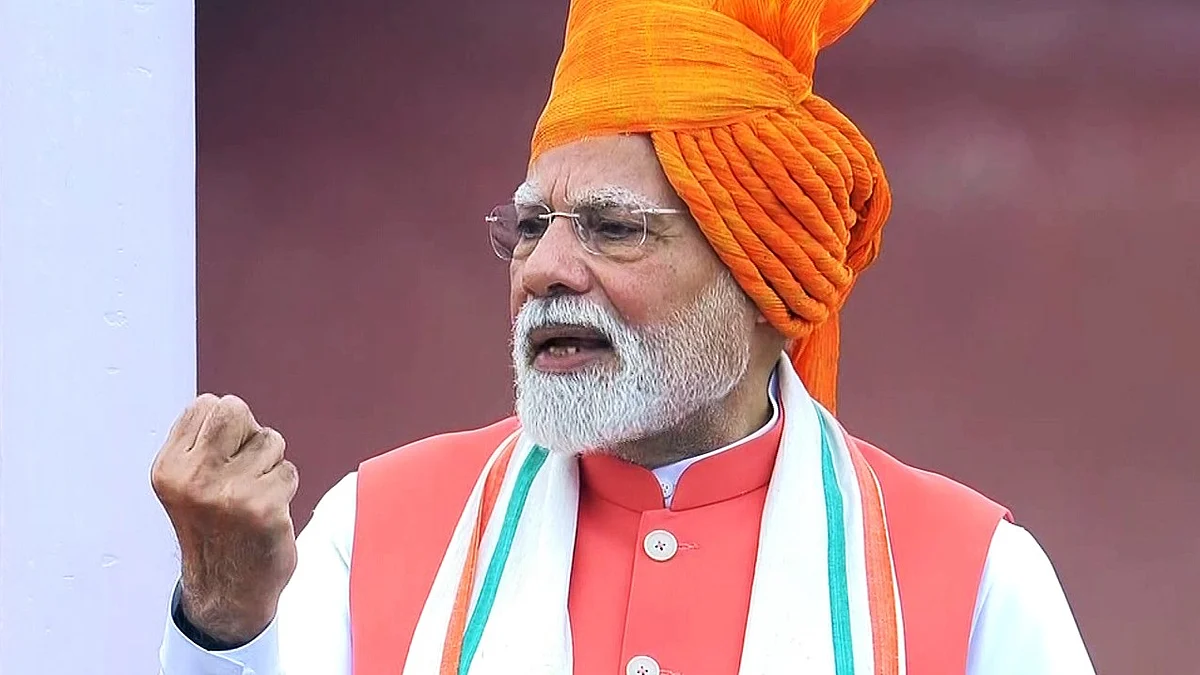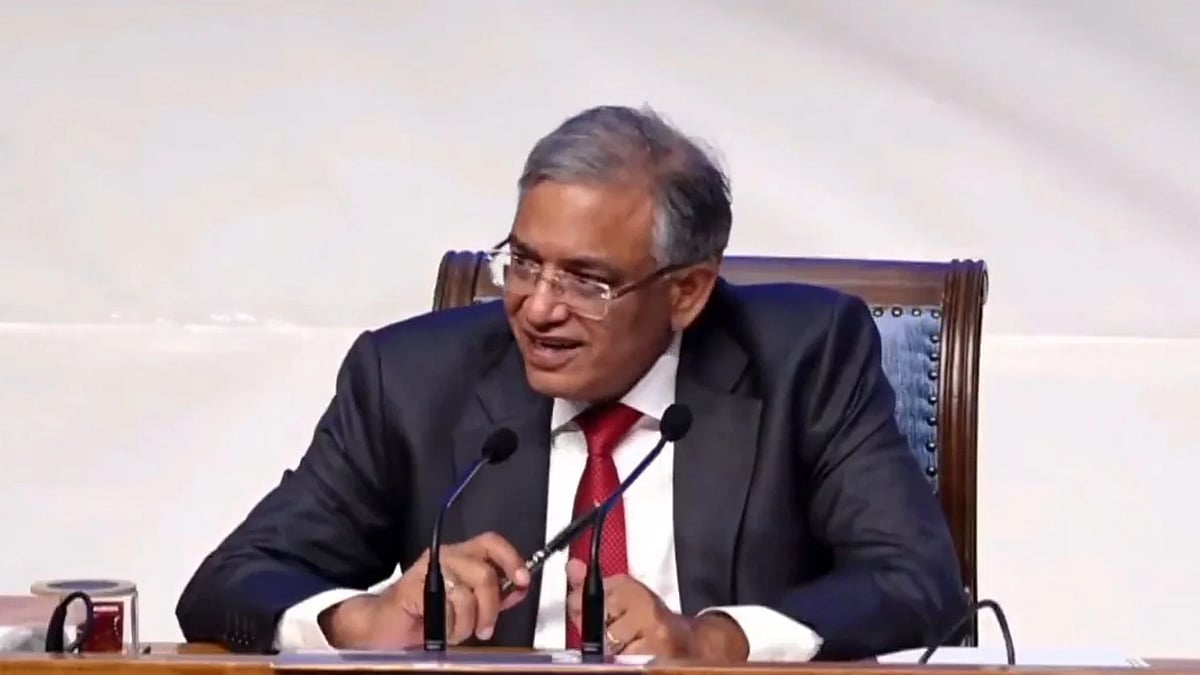New York, poet Walt Whitman once bemoaned, was the city with “the pull down and build over again spirit”.
The city has witnessed multiple iterations of this philosophy and it’s become somewhat of an adage.
If Whitman were to cast his eye over Mumbai, or Delhi, how might he have characterised the continuous pulling apart of the cities and building it over by multiple agencies with differing mandates and missions? This question, rooted in a debate that’s officially about five years old in Mumbai but has been heard across several decades, came to the fore as news reports floated once again about the Brihanmumbai Municipal Corporation’s (BMC) desire to be the city’s sole or singular planning authority.
An official request to this effect was sent in 2016 by the then municipal commissioner, Ajoy Mehta, to the Maharashtra government then headed by Chief Minister Devendra Fadnavis.
The incumbent commissioner Iqbal Singh Chahal made it part of his Budget papers last February. The issue has resurfaced now and then. The fact that multiple agencies –as many as 16, by one count – plan for Mumbai and/or implement projects on land under their jurisdictions has been long cited as the key reason for the uneven development of areas, abysmal services, and a near-total lack of coordination between service providers, which adversely impacts every Mumbaikar.
There’s truth in this diagnosis. The worse Mumbai looks and feels, and the more difficult it becomes to negotiate one’s way around,the deeper the truth seems to be. However, when this argument is extended to make the BMC the sole planning authority, it shows a logical fallacy.
It’s as if all vexed issues of planning and governance would be magically resolved if the BMCwere to be made the sole authority for planning the entire city. It’s too simplistic an argument to be embraced without critical evaluation.
There is an urgent need for a commanding authority to be in charge of planning for Mumbai and for existing multiple authorities to be integrated under its command so that there’s accountability and responsiveness to citizens. However, this should not translate into the BMC dictating down to all others and only its writ – or that of its ruling party – running large. The political angle is inescapable.
The Shiv Sena,which has been in power in the BMCfor 37 years now, with differing levels of popular vote, naturally bats for the corporation to be the sole planning authority for Mumbai.
Its reasons are deeply political but disguised as governance and such like. It considers the governance of Mumbai as its natural birthright.It’s often said in political commentary, not entirely without basis, that the BMC is the party’s resource pipeline. With the BMC and state government now aligned with the same party, it appears the ideal time for the Shiv Sena – by default,the Thackerays – to realise this dream.
However, its alliance partners in the state government,the Congress and the Nationalist Congress Party, are opposed to this idea on grounds that there were sound reasons to create specialised authorities with specific responsibilities.
Ministers and leaders of both these parties have repeatedly verbalised their opposition to the idea. It’s one among many fault lines between the three allies and its urgency will be determined by factors other than urban planning.
Indeed, the strengthening of some autonomous agencies in the post-liberalised Mumbai happened under the Congress-NCP governments to counter the Sena in the BMC.
The BJP, the fourth major player,has worked to minimise the BMC’s role while in power in the state from 2014 to 2019. Then, there’s the line oft-repeated about Mumbai being in the haphazard state it is due to the multiplicity of agencies involved in its planning and management.
In fact, while pushing for the BMC to be sole planning authority last year, CommissionerChahal said:
“There is no control of the BMC over these (autonomous) authorities, whereas the BMC is providing all infrastructura lfacilities such as water supply, sewerage facility, roads, streetlights, solid waste management services. This leads to loss of revenue to BMC and citizens have to suffer...citizens are unable to get solutions as there are multiple planning authorities”.
The MMRDA, created in 1975 to develop areas outside a congested Bombay,has near-total jurisdiction over five important nodes within Mumbai, including the spiffy Bandra Kurla Complex, and is the nodal agency for large infrastructure projects in the city including the metro.
The MHADA is in charge of providing affordable housing, the MIDC calls the shots in specialised industrial clusters such as in Marol-SEEPZ, defence establishments are in command of their areas, Mumbai Port Trust has control over 966 hectares on the city’s eastern coast since 2018 when the BJP’s Fadnavis government reduced the BMC’s role in it.
Even the road length across Mumbai is not entirely with the BMC. A possible way out of this tangle is notto shut down these agencies, even if it were possible,to handover the entire mandate to the BMC,but to integrate various agencies into a grid or even a hierarchy in which the BMC could be the first among equals.
The autonomous agencies could be mandated to carry out specific and/or specialised tasks or projects, but not without the BMC’s participation and nod. Mumbai is in a haphazard state not merely because there are multiple agencies carrying out different responsibilities but because these agencies do not coordinate with each other or even meet at a table regularly as a matter of protocol. The BMC can certainly be mandated to be the coordinating and command agency.
There’s a good reason to suggest this.Of all the agencies at work, only the BMC has an elected body to represent the voice and will of Mumbaikars; nearly all others are autonomous ones run by appointed bureaucrats and reporting either to the state or the Central government. What say will Mumbaikars have in the redevelopment of the eastern waterfront by the Mumbai Port Trust? Why shouldn’t we?
None of the autonomous agencies are accountable or responsive to citizens. This is agains tthe letter and spirit of the 74th Amendment to the Constitution, which gives elected municipalities power to draw up plans for a city’s economic development, social justice, and regulation of land use – and implement them.
For cities with populations of more than one million, the 74th Amendment provides for the creation of a metropolitan planning committee in which elected local representatives should be two-thirds of its total members.
There are complex issues of how this representation comes to be in elections that are determined by money or muscle power, but for what it’s worth, the elected are more accountable than career bureaucrats who head autonomous agencies.
This still leaves two issues – if a master plan is indeed advisable and what should constitute urban planning. A master plan for the city with substantial inputs from grassroots and citizens’ organisations is worth the effort it takes but a top-down master plan has little value. Also, if such a plan is confined to land-use zoning often without taking transport,health, environmental and social justice parameters into the planning framework, it matters little.
A city is more than its land, of course; it needs a holistic and sound plan incorporating the needs of its citizens.
(Smruti Koppikar, journalist, urban chronicler and media educator, writes on politics,cities, gender and development. She tweets @smrutibombay and surfsInsta on @bombayfiles)











